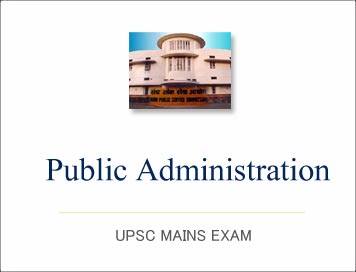(Online Course) Pub Ad for IAS Mains: Plans and Priorities: Indicative Planning (Paper -2)

(Online Course) Public Administration for IAS Mains Exams
Topic: Plans and Priorities: Indicative Planning
The Indian experiment in Planning for a socialist society through democratic process is unique in the contemporary world. Russia and China are both attempting to achieve socialism through planning but they do not use the democratic process. The Labour Party in Britain aims at bringing about a socialist society through democratic procures but has no centralized planning machinery. The U.S.A. is a democracy but believes neither in socialism nor in planning. It is only India which has attempted to combine all the three-planning, socialism and democracy. We want to bring about democratic, cooperative, socialistic pattern of society with mixed economy under a parliamentary system without modifying traditions a great deal. This is a challenging, albeit difficult task.
The advent of planning, since 1950, has affected the nature, scope and scale of administration of the Union and State Administrations in India. This impact has mainly arisen as a consequence of three major forces at work: (1) the assumption by the Government of developmental functions including those in the field of welfare; (2) the increase in the scale and variety of administrative operations ; (3) the need for the greater association of the people with, and their participation in, the administrative process to facilitate planning from below and effective implementation of the Plans.
Both the First and Second Plans as also the Third Plan have recognized the significance and role of public administration in the successful implementation of the plans. Said the First Plan: “In all directions, the pace of development will depend largely upon the quality of public administration, the efficiency with which it works and the cooperation which it evokes.” In the words of the Second Plan: “If the administrative machinery both at the Centre and in the States does its work with efficiency, integrity and with a sense of urgency and concern for the community, the success of the Second Plan would be assured.” Emphasizing the importance of administration in the successful implementation of the Plan, the Third Plan says: “The need for securing efficiency and speed in execution and widespread confidence in the integrity of the administration at all points affecting the general public has always been stressed as vital problems in economic development. With the increase in the tempo of development activities and in the functions of Government, these aspects of administrative reforms have assumed even greater urgency.’ Verily, all planning resolves itself into a set of administrative tasks.
Since July 1991 India is committed to a policy of liberalisation of economy involving de-regulation, de-control and de-licensing. India is now wedded to what is called indicative planning. Under the new dispensation, the state’s role in India marks a shift. From direct rowing Indian administration is now called upon to playa steering role. It will have to develop regulatory skills and mechanisms to secure its objectives.
Planning Under New Economic Policy adopted in 1990
From a highly, centralised planning system, India has moved towards indicative planning under the indicative planning, Planning Commission concerns itself with the building of a long term strategic vision of the future and decides on priorities of the nation. It works out sectoral targets and provides promotional stimulus to the economy to grow in the desired direction. Since the adoption of the New Economic Policy Planning Commission plays an integrative role in the development of a holistic approach to policy formulation in the critical areas of human and economic development. The emphasis of the Commission is on maximising the output by using our limited resources.
